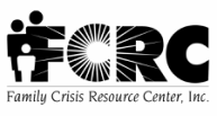Part Two: Addressing Sexual Assault and Sexual ViolenceFor part two of our LGBTQIA series, we will be discussing sexual assault and sexual violence in the LGBTQIA community. Sexual violence happens in every demographic and within every community. The rates of sexual violence within the LGBTQIA community are at similar, if not higher rates (Human Rights Campaign HRC, 2020). One study completed by the National Coalition of Anti-Violence Projects (NCAVP), suggests that one in ten LGBTQIA survivors has experienced a sexual assault from their partners. When looking specifically at transgender people and bisexual women, about 50% will experience some form of sexual violence in their lifetime (HRC, 2020).
As with intimate partner violence, LGBTQIA victims/survivors often face stigma, barriers, marginalization, and violence motivated by homophobia, transphobia, and biphobia. Sometimes a sexual assault is used as a form of hate-motivated violence (HRC, 2020). Additionally, society places stereotypes on the LGBTQIA community, such as “this community is hypersexualized”, “they are deviant”, or “their relationships are not serious and won’t last”. Stereotypes, stigma, and discrimination often keep victims/survivors silent and can create an environment of victim blaming or shame surrounding the sexual violence. THE STATS Some quick facts from the National Coalition against Domestic Violence (NCADV) and the National Resource Center on Domestic Violence (NRCDV):
SUPPORT What can you do if someone you know has been sexually assaulted?
What can you do if you have been sexually assaulted?
You are not alone. We are here for you. Some additional resources: LGBT National Help Center National Hotline (1-888-843-4564) or National Youth Talkline (1-800-246-7743) https://www.glbthotline.org/ Forge (Serves Transgender and gender non-conforming survivors of domestic and sexual violence) https://forge-forward.org/ National Sexual Assault Hotline 1-800-656-HOPE (4673) Reference Links: http://www.mmgconnect.com/projects/userfiles/File/DCE-STOP_NOW/NCADV_LGBT_Fact_Sheet.pdf https://ncadv.org/blog/posts/domestic-violence-and-the-lgbtq-community https://static1.squarespace.com/static/566c7f0c2399a3bdabb57553/t/566c9be29cadb6bf7efc8e1e/1449958370563/It-Takes-A-Village-People-Web-Version.pdf
1 Comment
Leave a Reply. |
Archives
February 2021
Categories |

 RSS Feed
RSS Feed
